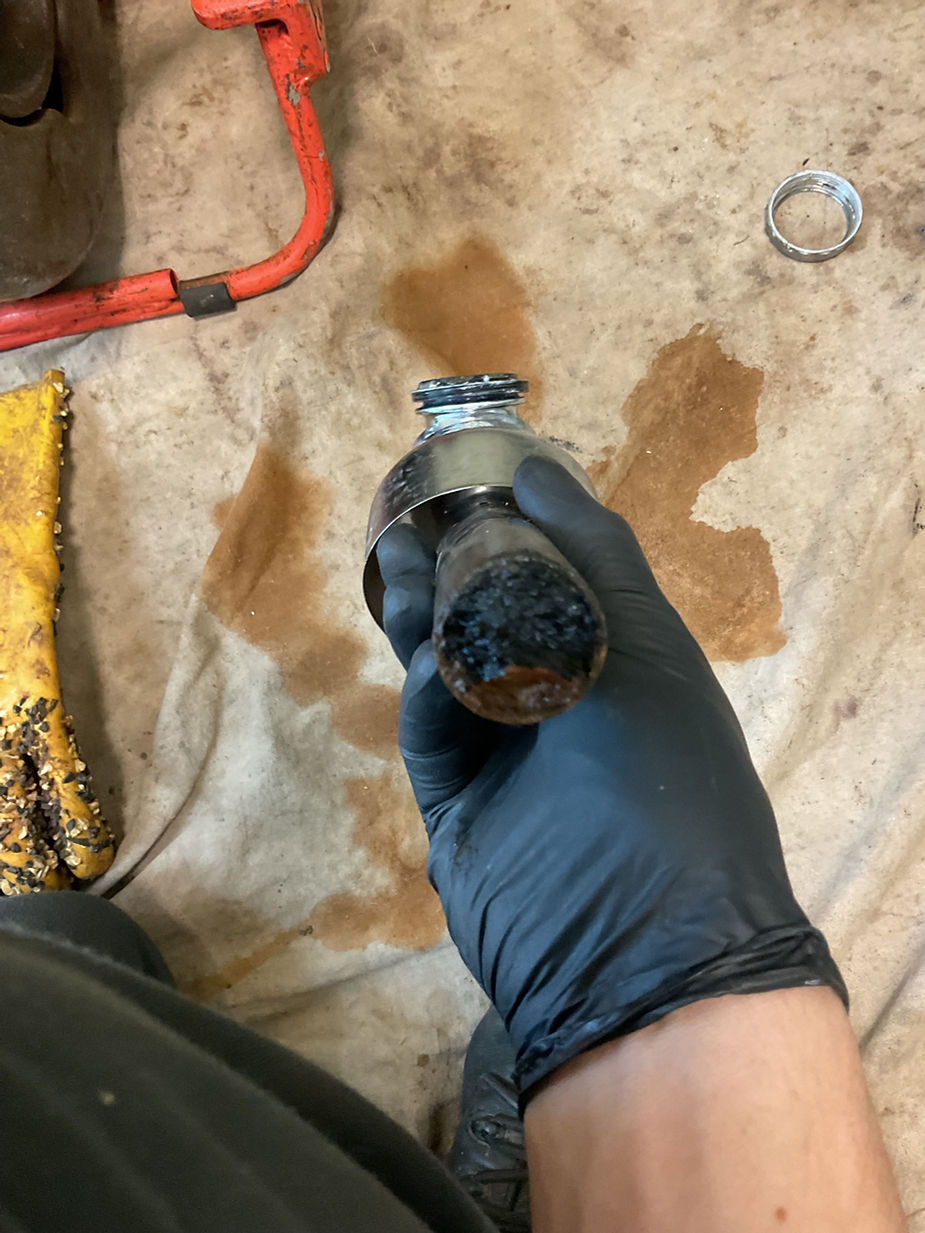
If you’ve ever stood over your sink, frustrated that water is swirling slower than a lazy Sunday, you might have a greasy villain lurking in your pipes. And no, I’m not talking about last night’s leftover pizza. I’m talking about grease and sludge buildup—the sticky, smelly mess that loves to turn your kitchen drain into a clogged disaster.
In this post, I’ll break down why grease and sludge build up, how to stop them before they ruin your weekend, and what to do if you catch them in the act.
The Greasy Truth: Why This Happens
Think of your kitchen drain like your body’s arteries. You eat a high-fat meal, and over time cholesterol clogs your arteries. In your sink, hot grease from cooking seems harmless when it’s liquid—but once it cools inside your pipes, it solidifies like candle wax. Layer after layer, it narrows your drain until even a trickle struggles to get through.
Here’s the science:
- Grease: Hot liquid fats cool and turn into sticky solids that cling to the pipe walls.
- Sludge: A nasty mix of grease, soap scum, food particles, and whatever else you’ve rinsed away. It’s basically the pipe version of swamp muck.
- Over time, grease acts like glue, trapping more debris, making the clog grow like a snowball rolling downhill.
The “Safe” Myths That Aren’t So Safe
Many homeowners accidentally make things worse by believing these common misconceptions:
- “I’ll just run hot water while pouring grease.”Nope. Hot water only keeps grease liquid until it travels farther down the pipe—where it cools and hardens.
- “It’s fine if I use the garbage disposal.”Disposals chop food, but they don’t dissolve grease. In fact, grease-coated bits clog faster.
- “Dish soap breaks down grease completely.”Soap may cut grease on plates, but in pipes, it mixes with fats to form a harder, stickier clog.
Prevention: Your 3-Step Grease Defense Plan
1. Catch Grease Before It Hits the Drain
- Wipe greasy pans with paper towels before washing.
- Pour cooled grease into a container (old coffee can, jar) and toss it in the trash.
- Use a fine mesh drain strainer to catch food scraps.
2. Change Your Rinsing Habits
- Scrape food into the trash or compost bin—not the sink.
- Rinse dishes with cold water first if they’re greasy (it hardens fat on the plate so it can be scraped away).
- Run the disposal only for small scraps, and with plenty of cold water.
3. Keep Pipes Clean with Monthly Maintenance
- Flush with boiling water once a week to melt thin layers before they harden.
- Use a DIY cleaner:
- Pour ½ cup baking soda down the drain.
- Follow with 1 cup vinegar.
- Let fizz for 10 minutes, then flush with hot water.
- For heavy-duty prevention, use enzyme-based drain cleaners monthly—these break down organic matter without harming pipes.
Early Warning Signs of a Grease Clog
Catching the problem early can save you a plumber’s bill:
- Water drains slower than usual.
- Gurgling sounds from the drain.
- Persistent foul smells (that “old leftovers” odor).
- You have to run water longer to clear the sink.
If You Already Have a Grease Clog
Before calling a plumber, try:
- Boiling Water Shock – Slowly pour 2–3 kettles of boiling water down the drain, waiting a few seconds between each pour.
- Baking Soda + Vinegar Treatment – The fizz helps loosen sludge.
- Plunger (Sink-Specific) – Create a tight seal and plunge with quick, strong motions.
- Drain Snake – For stubborn blockages, a hand auger can break up the grease clump.
If these don’t work—you’re likely dealing with a thick, hardened buildup deep in the line. At that point, professional hydro-jetting is your best friend.
The Bottom Line
Grease and sludge clogs aren’t just annoying—they can cause serious pipe damage and costly repairs if ignored. The key is prevention: keep grease out of the drain, maintain your pipes, and watch for early signs of trouble.
Think of it like this: every time you keep grease out of your sink, you’re saving your future self from an expensive, smelly mess. Your pipes (and your wallet) will thank you.
%20(1).avif)


